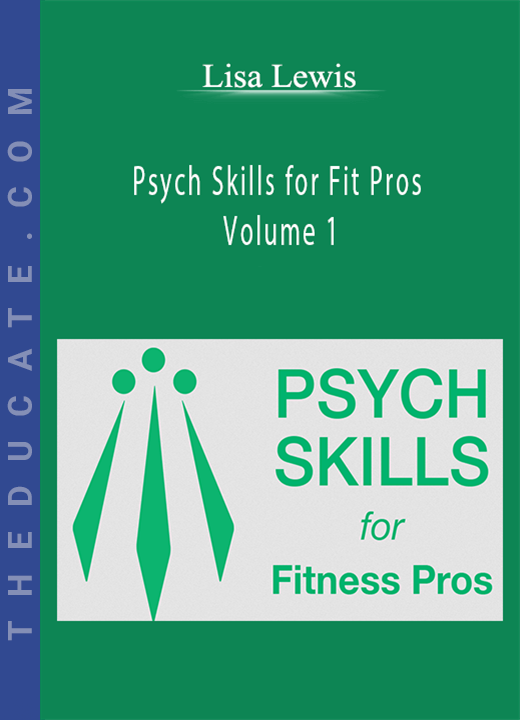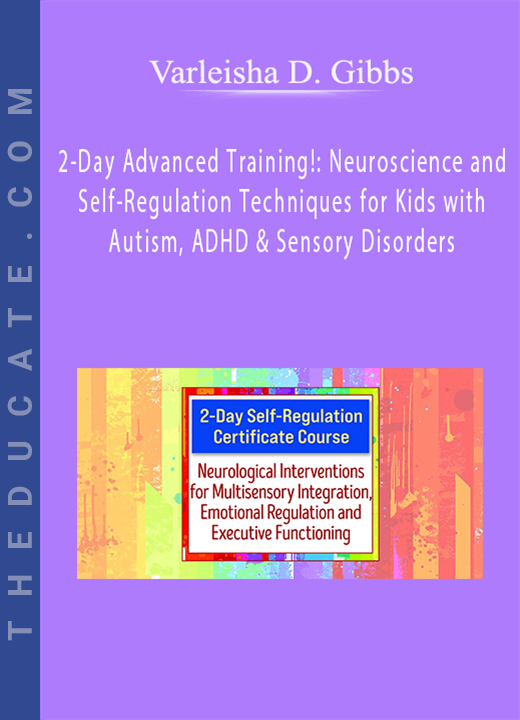Description
Lisa Lewis – Psych Skills for Fit Pros, Volume 1
THE SKILLS I’M OFFERING CAN HELP YOU LEARN:
- Evidence-based approaches for behavioral change and exercise psychology to help you sustain your clients’ motivation throughout their journey, so they consistently progress toward their goals.
- Simple communication techniques that can help your clients get out of their own way and get clear and effective results working with you.
- How to reduce burnout and work frustration by reframing and redirecting draining and negative client interactions, so you approach your work excited and motivated to coach, tapping back into the excitement and optimism you had when you first started in the fitness industry.
- Easy methods to add world-class skills to your coaching toolbox to keep a positive and fun training environment.
- How to stop taking on clients’ failures as your own, so you have confidence in your coaching abilities, and no longer take it personally when, resist change, or seem “unwilling”, no matter how hard you work for them.
- How most successful fitness professionals are able to separate work from personal life and take care of their own physical and emotional health.
- How to help your clients break through plateaus, reduce frustration, and make progress.
- The top 10 tools and techniques psychologically-minded fit pros can use to help them navigate the toughest clients.
Every year, thousands of fitness professionals enter the fitness industry, excited to be a beacon of change, motivating and inspiring people to lead healthier lifestyles.
But most fitness professionals leave the industry before a year and a half, frustrated, burned out, and missing the opportunity to tap into their full potential.
Why?
Most fitness pros get into the fitness industry because they are passionate about it. Fitness comes easy to them and it’s something they love.
You may have ended up in the industry for similar reasons.
As a fitness pro, it’s easy to pack your lunches and hit the gym five to six days a week. Habits like these come naturally to you. You’re excited about training, disciplined with diet, and get a kick out of fitness, organization, dedication, and persistence, so it can be difficult to remember that this is not easy for most people!
When clients aren’t “good,” or compliant, coaches can get drained, and frustration can build up.
Before now, there has not been a certification or qualification that teaches the fundamental, yet the most important, aspect of coaching. And it’s certainly not covered in your personal training or nutrition coaching exams:
What am I talking about?
Why focus on psych skills?
- Why do we address psychological skills when it comes to physical and nutritional goals?
- Why can’t we just focus on knowledge of physiology, anatomy, and nutrition to help clients?
- And why do we need to develop psychological—sometimes called “soft skills”—in the first place?
Because:
You can have the biggest, broadest knowledge base, and years of experience, but if you can’t
- communicate effectively,
- understand your clients’ barriers to change, and
- intervene on those barriers consistently,
then you can’t do your job well.
Behavior and habit change is hard!
If your clients were to take your workout program and nutrition advice, then went ahead and perfectly executed it—they wouldn’t need your coaching past a month or two.
What I have learned from fitness professionals around that world is that the largest percentage of your work revolves around the psychology of coaching.
Due to the nature of your work, you have to develop good communication skills, excellent interviewing skills, an understanding of motivation, and the process of change.
You need psychological skills to not only obtain clients, but to keep them and to improve their outcomes over time.
In short, You can have the most effective program in the world, and have a mastery of anatomy, physiology, and nutrition science, but if you don’t have any understanding how and why people make change, you’ll lose the opportunity to work with all the clients who have difficulty changing…
3 REASONS WHY YOUR CLIENTS AREN’T GETTING RESULTS
REASON #1. SUFFOCATING CLIENTS’ MOTIVATION BY BEING THE “EXPERT”
REASON #2. MAKING CLIENTS DEPENDENT ON YOU
REASON #3: MAKING CLIENTS’ “FAILURES” A REFLECTION OF YOUR PERSONAL SUCCESS
THE COURSE FILLS UP YOUR TOOLBOX WITH CLEAR, GENUINE, MOTIVATIONAL AFFIRMATIONS, INTERVIEWING SKILLS, AND TECHNIQUES THAT YOU CAN UTILIZE WITH YOUR CLIENTS TO HELP THEM PURSUE SUCCESS, AND TO BECOME REFERRAL SOURCES OF YOUR NEXT CLIENTS.
The Psych Skills for Fit Pros curriculum includes lectures in webinar format, ranging from 5 to 40 minutes, interviews with fitness professionals that are 20-30 minutes, worksheets for reflection and application, quizzes, and a workbook with all of the content slides in the lectures.
THIS IS WHAT YOU’LL DISCOVER OVER THE NEXT SIX WEEKS:
SECTION 1. COURSE OVERVIEW AND MENTAL PREPARATION
Get to know your instructor, and learn a quick psych skill to prime your mind for learning and focused attention while you’re completing the course.
SECTION 2. MOTIVATION, PART 1: MOTIVATION IS UNIVERSAL
This section covers the core ingredients of motivation, as well as simple and effective ways to help your clients consistently feel motivated, and to use that motivation in pursuit of their goals.
SECTION 3. MOTIVATION, PART 2: THE SPECTRUM OF MOTIVATION
Find out about the many different ways your clients can be motivated, and how to harness each type of motivation in order to get the most effort out of every single session.
SECTION 4. MOTIVATION IN MOTION: THE TRANSTHEORETICAL MODEL
Clients experience a variety of feelings about starting something new. In this section, you will learn how to get out of the clients’ way so that they can change. You can assist and support by identifying where in the process of change your clients are and the exact techniques to use to help them move forward.
SECTION 5. MOTIVATIONAL INTERVIEWING: GUIDE AND GROW MOTIVATION
Here you will learn to implement this highly-effective communication style into your everyday work. Using MI skills effectively can improve adherence to workout programs and nutrition plans and help clients feel heard, valued, and capable of change.
SECTION 6. APPLICATION AND INTEGRATION
In this final section we and focus on those skills which would be most helpful to you and your clients, and set goals for focusing on developing those skills first. During this section you will identify your top 10 techniques and tools to use when working with clients.







12 reviews for Lisa Lewis – Psych Skills for Fit Pros, Volume 1
There are no reviews yet.